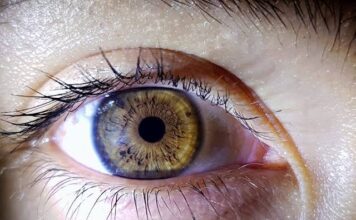Glaucoma, commonly known as the ‘silent thief of vision’, along with retinal disease, stands as the primary causes of irreversible blindness in Nigeria, as per eye specialists.
They highlighted that refractive errors like myopia, hypermetropia, and astigmatism are also prevalent eye issues in the country.
As reported by Wakadaily , ophthalmologists stressed the importance of early detection to either prevent or delay the onset of blindness.
Glaucoma, according to the National Eye Institute, is an eye ailment that harms the optic nerve, resulting in vision loss and potential blindness.
A blog focused on advocating for glaucoma awareness, Gluacomapatients, indicated that around 79.6 million individuals were affected by glaucoma in 2020, with that number projected to rise to 111.8 million by 2040.
Statistics from the Nigeria National Blindness and Visual Impairment Survey of 2015 revealed that approximately 4 percent of adults aged 40 and older in Nigeria have glaucoma, with 1.4 million Nigerian adults diagnosed with the condition contributing to 17 percent of blindness cases.
Additionally, the Glaucoma Research Foundation mentioned that while older individuals face a greater risk of developing glaucoma, babies can also be born with the condition.
Retinal diseases, such as diabetic and hypertensive retinopathy, are prevalent causes of avoidable blindness. Diabetic retinopathy, as described by the American Academy of Ophthalmology, involves damage to the blood vessels in the retina due to high blood sugar levels caused by diabetes, resulting in vision loss.
The survey on Blindness and Visual Impairment disclosed that 20.5 percent of individuals with diabetes experienced diabetic retinopathy, with 10 percent at risk of losing their vision.
Experts unanimously agree on the critical need to enhance public awareness and education regarding these conditions to prevent irreversible blindness and promote ocular health in Nigeria.
Wakadaily learnt that, Professor Afekhide Omoti, the Chairman of the National Eye Health Committee, highlighted the increasing incidence of glaucoma in Nigeria, noting that while the condition itself may not be preventable, blindness stemming from it can be avoided through timely intervention.
“But it can only be prevented by early detection and appropriate treatment. In many cases in Nigeria, surgery is the most appropriate treatment,” the don mentioned.
He highlighted that diabetic retinopathy is a growing concern leading to vision loss and blindness, and emphasized the crucial need for regular eye check-ups for individuals with diabetes to detect and treat the condition early on, preventing severe complications.
“All diabetics should have a dilated fundoscopy every year to identify early features of Diabetic Retinopathy and to immediately treat them.
Also, lifestyle changes should be encouraged to reduce the burden of diabetes mellitus,” he stated.
The ophthalmologist emphasized that cataracts, the primary cause of blindness, can be completely treated with surgery, resulting in full vision recovery.
He also stressed the importance of addressing traumatic eye injuries, especially in children, and correcting refractive errors with appropriate glasses or contact lenses.
Regular eye exams with ophthalmologists are crucial for early detection and treatment of blinding conditions.
Meanwhile, Dr. Bernadette Aghahon, another eye specialist, noted that refractive errors are increasingly common in Nigeria, occurring when the eye fails to focus light on the retina, resulting in blurry vision.
“So, they could be short-sighted, which we call myopia, or it could be long-sightedness, also called hyperopia. There’s one also called astigmatism, in which there are two lines formed, one of the focal could be on the retina, and the other one could be in front or behind the retina. So, we call that astigmatism. So, it’s a leading cause of eye problems in Nigeria,” Aghahon stated.
The eye specialist warned that glaucoma, diabetic retinopathy, and hypertensive retinopathy are becoming more prevalent in Nigeria due to the rising incidence of diabetes.
She highlighted glaucoma’s unique threat of causing permanent vision loss, unlike the other two conditions which can be treated and reversed.
To combat the growing burden of eye problems, she advises annual eye exams for individuals without symptoms and more frequent checks for those with eye issues.
Additionally, she cautioned against self-medication and over-the-counter remedies, stressing the importance of seeking professional medical advice for effective management and prevention of vision loss.
“Advocacy through media and lectures can raise awareness about the dangers of self-medication and the importance of proper eye care. Many people are not aware of the risks associated with glaucoma and other eye issues,” the eye doctor highlighted.
